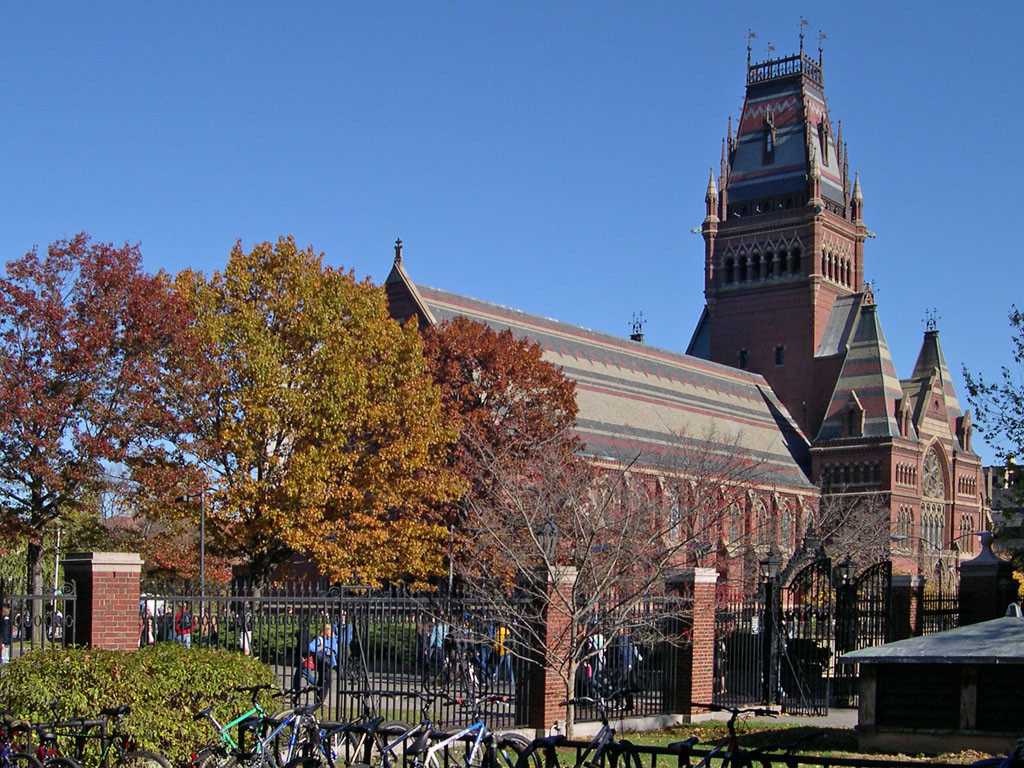Pressure for prestige has made college admissions a circus
Applying to and getting into college puts enormous pressure on students and families. Many students believe they need to get into the “best” (highest-ranked) college possible in order to have a chance at getting a good job after college.
Particularly among the wealthy, there’s often competition between parents as their children apply to the same prestigious colleges, Robert Reich writes in a recent piece for Slate.
High pressure to attend elite colleges
These parents go to great lengths to increase their children’s chances of being admitted–from sending them on trips and hiring expensive college coaches to making large donations to the universities they attended in order to secure their children’s place as a “legacy” student.

Students and parents feel enormous pressure and go to great lengths to get into elite private colleges like Harvard.
Colleges themselves feel the pressure to move up in the rankings, and thus seek to make their institutions seem elite by driving up applications, keeping admissions rates low, and enrolling high-achieving students.
It’s “nuts,” according to Reich–and we couldn’t agree more.
Desire for college prestige leads to debt
Reich argues that students feel compelled to go to college, and in particular a high-ranking one, because it’s become a necessary gateway to the middle class.
Feeling the pressure, students attend expensive colleges and often take out enormous debt to pay for it.
But when they graduate, many students find their new job doesn’t pay enough for them to pay back their debt. And for 46% of college graduates, they find they didn’t even need the degree in order to do the job they have.
Meanwhile, many employers say that most colleges are doing a poor job preparing students for jobs and would rather they learned more technical skills.
College alternatives are needed
Reich argues that there need to be more vocational-technical and nontraditional options for students who don’t fit the 4-year college mold.
In particular, he says community colleges would be smart to start developing these curricula. He also suggests that businesses could be advising on the technical skills they’ll need and promising jobs to young people who complete their degrees with good grades.
While, in general, statistics show that a college degree pays off, it definitely depends on the type of degree and how much debt the student takes on to pay for it.
More alternatives, such as specialized programs that make it easier for students to get good jobs in their field could help reduce the competitive atmosphere that drives college admissions and the overall amount of student debt.
Even if a student gets a traditional degree first, these programs would go a long way in enhancing his or her degree.
Consider return on investment when paying for college
This pressure and battle for prestige can make even the most rational person make some fiscally irresponsible decisions, such as taking out $200,000 to attend a private university when the graduate will only be qualified for a job making $30,000.
Families and students need to consider the return on their investment when choosing a college or other option.
For students that wish to attend a 2-year or 4-year college, we help families find affordable options that won’t leave them with high levels of student debt. To find out how we can help, give us a call at 1-888-234-3907 or contact us using this form.
“Harvard college – annenberg hall“. Licensed under CC BY-SA 2.0 via Wikimedia Commons.
affording college, applying to college, choosing a college, college admissions, college costs, college value, paying for college, return on investment, student debt, student loans
